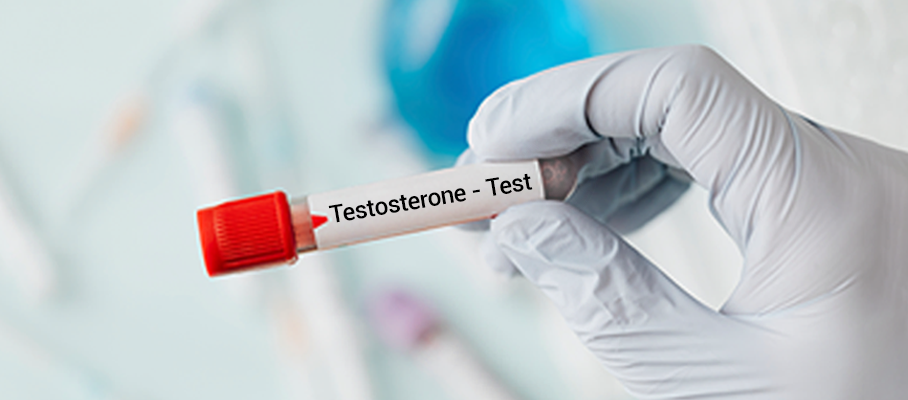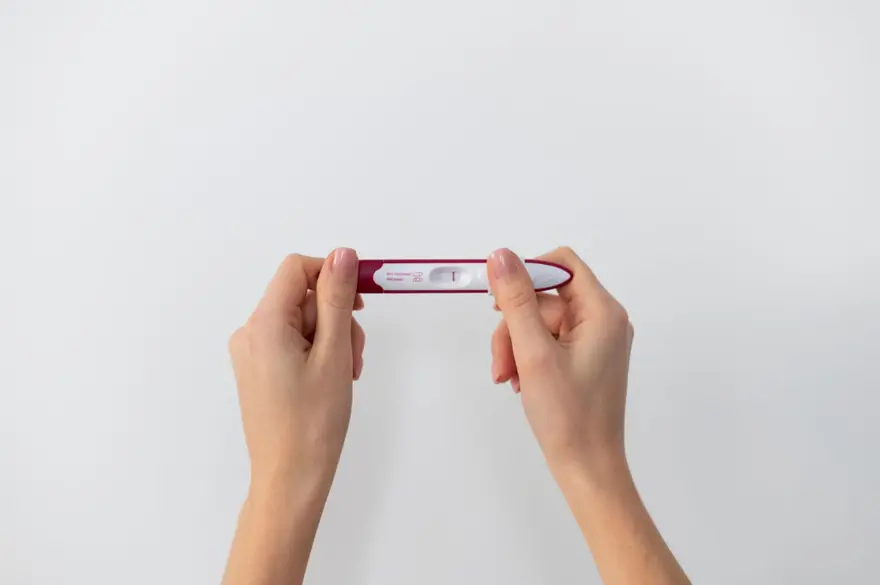Health Test
What Does a Testosterone Test Tell You?
29076 Views
0

Testosterone is a sex hormone that is pivotal for the development of male features. This hormone regulates the changes that happen in boys during puberty including the growth of hair, muscles, penis, and testes. The voice deepening, sex drive, and sperm production in men are also mediated by this sex hormone. Though men continue to produce testosterone, it is normal for the levels to decline slightly with advancing age after age 30 or so. Get it tested with Testosterone Test.
While it is chiefly a male sex hormone that is produced in the testes in men, testosterone is important to support various organs and body processes in women too. It is present in small quantities than men and is made by the ovaries in women and in the adrenal glands.
Free vs Total Testosterone Test
The testosterone circulating in the blood gets itself attached to two proteins: albumin and sex hormone-binding globulin (SHBG). Some of the testosterone is unattached, called free testosterone. Free testosterone and albumin-bound testosterone are also known as bioavailable testosterone as it is easily available to be used for body processes and functions.
What is Testosterone Test
The level of the hormone testosterone in your blood can be easily tested with a blood sample taken from a vein. A testosterone blood test is used by your doctor for diagnosing conditions caused by too much or too little testosterone in the body. The other names for this test are testosterone (total) and serum testosterone.
Book a testosterone test within the comfort of your home.
When Do You Need to Get Your Testosterone Levels Checked?
Both men and women may need to get a testosterone test done. You may require a testosterone test to look for abnormal testosterone levels, too little or too high.
The purpose of testing may include
- Men: To detect the cause of symptoms, such as erectile dysfunction or the male infertility
- Women: To support the diagnosis of male-like physical features (called virilization), excessive body hair (hirsutism), female infertility, or hormonal imbalances including polycystic ovary disease (PCOD).
- Children: To identify what may be causing delayed or early (precocious) puberty, or unclear differentiation of genitalia (not clearly male or female).
- Transgender: To monitor testosterone levels while undergoing hormone therapy.
Men and women can have different clinical presentations when dealing with low or excess testosterone levels. Here we are taking a look at what high or low testosterone levels may cause in men and women:
Warning Signs of Testosterone Deficiency
Specific Symptoms of Low Testosterone in Men
- Decreased sex drive.
- Problems with erectile function
- Loss of body hair
- Less beard growth.
- Reduced lean muscle mass.
- Chronic fatigue
- Being overweight
- Symptoms of depression.
In Women, Lack of Testosterone Can Result in:
- Fertility problems
- Reduced sex drive
- Irregular or absent periods
- Dryness of vagina
- Weakened bones
Symptoms of High Testosterone in Women are Mentioned as Follows:
- Oily skin and pimples
- Darkened skin patches
- Enlargement of clitoris
- Excessive male-pattern hair on the face or body
- Hair loss on the head (baldness)
- Irregular or no periods
A few times, excess testosterone results due to a condition known as congenital adrenal hyperplasia (CAH). This can cause men to have an abnormally large penis and women to have abnormal genitalia at birth.
PCOD in Women and Testosterone: Are They Related?
PCOD is a common hormonal imbalance that affects 1 in 5 women in India. It leads to the irregularity of the menstrual cycle, acne, hair loss, excessive facial hair, coarse skin, and problems in conceiving. Many women with PCOD are found to have an imbalance in certain hormones, increased levels of testosterone being important. Usually, testosterone values in PCOD will be less than or equal to 150 ng/dL (≤5.2 nmol/L). Testosterone values of ≥200 ng/dL (≥6.9 nmol/L) may warrant your physician to consider the cause to be an ovarian or adrenal tumor.
However, it is not the sole diagnostic criteria for PCOD. Depending on your results, you might also need one of these other tests:
- Androstenedione (AD): To detect how well your adrenal glands or ovaries are functioning.
- DHEAS Test: To diagnose any problems in your adrenal glands.
- Estrogen level: To detect more about infertility or menopause.
- Follicle-stimulating hormone (FSH) or luteinizing hormone (LH): To evaluate fertility in women. Book LH-FSH ratio test here.
- Prolactin test: To look for possible causes of breast discharge, missing periods, or decreased sex drive in women.
Any Special Preparations Needed? What Might Affect Testosterone Test Results?
There aren’t any special test preparations required. The sample is typically taken in the morning. As per experts, getting the test done late in the day may give your testosterone level lesser than it really is.
However, some medicines including antifungals and hormone medicines can impact your test results. These include antifungal medicines such as ketoconazole and hormone medicines.
Key takeaway
In most cases, testosterone levels can vary simply based on physiological factors like age, diet, or physical activity levels. However, it is important to discuss your testosterone test results with a doctor who can appraise if your deranged levels are just occurring as a result of the aging process or health condition.























 WhatsApp
WhatsApp
